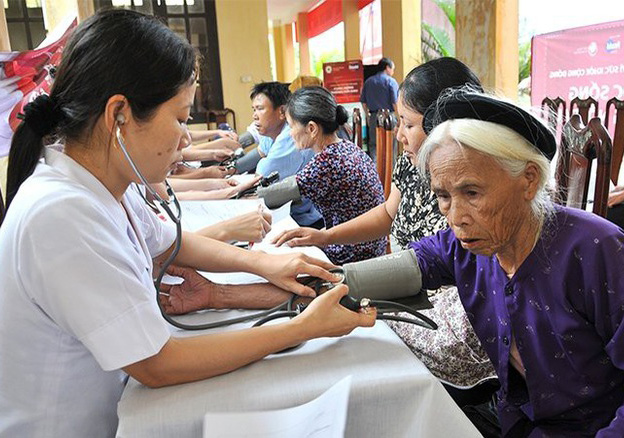HCMC – Vietnam’s economic growth in the 2020–2050 period will slow by 0.9 of a percentage point compared with the last 15 years as its population ages, according to a new report of the World Bank (WB).
At the same time, addressing the needs of an aging society is forecast to cost from 1.4% to 4.6% of gross domestic product (GDP) in additional expenditure. Expanding coverage and improving service quality will drive growth in fiscal costs.
Vietnam is going through a demographic transition to an older society at an earlier stage of economic development and a lower level of per capita income than other countries who have experienced a similar shift, according to the report, “Vietnam: Adapting to an Aging Society”, jointly conducted by the WB and the Japan International Cooperation Agency (JICA).
With falling birth rates and a rising life expectancy, Vietnam’s elderly are expected to account for between 10% and just under 20% of its population by 2035.
Besides, Vietnam’s old age dependency ratio, the number of people over 65 divided by the number of those of working age, is estimated to double from 0.11 in 2019 to 0.22 in 2039.
The prospect of “getting old before getting rich” means that Vietnam faces a set of important challenges whose solutions require making hard policy choices. Population aging would squeeze public finances and stress the service delivery system, unless timely reforms are set in motion.
“Vietnam has been good at tapping into an abundant work force to drive economic growth over the past three decades,” said Carolyn Turk, WB Country Director for Vietnam.
“As Vietnam’s population ages, it will be important to build the skills of the workforce to boost innovation and productivity in the economy, while ensuring that pension reforms now begin to sustain livelihoods for the elderly in the decades to come.”
The report suggested that Vietnam learn from other countries that have experienced a similar demographic transition including Japan, in particular, to manage its aging population effectively.
The country needs to accelerate reforms to improve labor force participation and productivity, increase the efficiency of public expenditures, and strengthen the service delivery system.
Rising labor productivity will require a significant investment in human capital and a supporting policy and regulatory environment, while lifestyle changes will increasingly be needed to promote healthy, active and dignified aging.
To prepare for its aging society, Vietnam should improve human capital among the young and close the gaps between ethnic groups and urban and rural populations, build worker skills for today’s and tomorrow’s jobs, and facilitate the participation of older workers in the labor force.
The report also suggested that the Government reform retirement and hiring policies to lengthen productive working lives, encourage labor market transitions to sectors that show increasing productivity over the lifespan, and close gender gaps in labor market outcomes.
“Since becoming a super-aged nation in the 1960s, Japan has experienced various implications of aging, particularly those related to adjusting social protection programs and promoting community-based care,” said Shimizu Akira, Chief Representative of JICA Vietnam Office.
“There have been a lot of successes, and also many bitter experiences. We hope these shared lessons will be useful for Vietnam to not only cope with the demographic shift but also to benefit from it.”
The report is a part of a JICA and WB joint program to assist Vietnamese policy-makers in preparing for an aging society.











